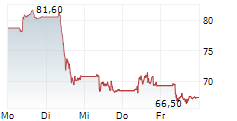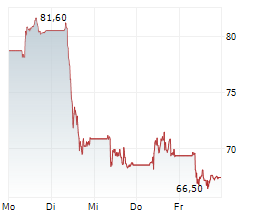
Nurse informaticist tops list of nursing roles forecasted for growth
Chronic staffing shortages and shifting patient acuity levels continue to challenge traditional nursing care models, but according to a new Wolters Kluwer Health survey, U.S. nursing leaders see a path forward to meaningful changes for sustainable improvements and enhanced patient outcomes. The first-ever FutureCare Nursing 2025 report highlights how nurse leaders and the nursing workforce can collaborate to be a catalyst for change.
"In today's dynamic healthcare ecosystem, nursing leaders must take action to implement different care approaches to address the challenge of improving patient outcomes," said Julie Stegman, Vice President, Wolters Kluwer Health Learning Practice. "There is an opportunity for hospitals and health systems to allow nurses to focus more on patient care through innovations in technology and different care models. Nursing leaders across the U.S. have acknowledged that patient care and managing the nursing workforce must combine the exploration of new care models, which aim to improve outcomes, while increasing their workforces' capacity and engagement."
Nurse leaders: Care delivery models are not one-size-fits-all
The survey results suggest that there is a clear need to build a culture of innovation in which organizations pilot new models and evaluate the advantages that can come with the shifts. The nursing leaders polled validated a handful of models currently in place as working well across the industry:
- Value-based care (87%)
- Collaborative care (81%)
- Team-based nursing (74%)
Top five forward-looking nursing care models
While current models have demonstrated their promise, several care models emerged as avenues organizations can take to improve nurses' working environments and make caring for patients more seamless. The top five nursing care delivery models that healthcare institutions are planning to implement are:
- Home health nursing (71%)
- Internal float pools (68%)
- Virtual nursing (66%)
- Telehealth nursing (66%)
- Multi-disciplinary care (61%)
With these nursing models forecast to grow, new care-related technologies will be vital to enhance and improve daily workflows, particularly with home health, virtual, and telehealth nursing. When asked how they will measure the success of these implementations, around half of the survey respondents highlighted the following three areas as most impactful:
- Reduced medical errors (51%)
- Optimized nurse staffing and workforce management (50%)
- Improved clinical outcomes (48%)
"We cannot continue to work the same way; the climate has changed, and we must adapt so that we can continue to provide the best experience and outcomes for our patients, while ensuring our nursing staff is cared for," says Sylvain Trepanier, DNP, RN, CENP, FAONL, FAAN, Chief Nursing Officer at Providence. "Collaborating with our hospital leaders and nurses to find innovative solutions is essential in order to continue to provide compassionate care to our communities."
Nursing leaders predict the nursing roles to be most in demand
To support the rollout of new nursing care models, hospital and health system leaders will be looking for specialized skills and experience when increasing the engagement and retention of their workforce. Nursing students and nurses looking to expand or change their careers should consider the growing demand for nursing roles that, in some cases, are tech-enabled. When polled about new roles they would look to add when implementing new care models, respondents ranked the following as the top areas:
- Nurse informatics (52%)
- Telehealth nurses (50%)
- Nurse care coordinators (50%)
- Nurse educators in telehealth and virtual care (47%)
- Internal float pool nurses (41%)
- Home health nurse coordinator (41%)
- Nurse case manager (41%)
Can new care models make it better for nurses?
Implementing new care delivery models may help organizations meet patients' needs but they can also help address some of the biggest factors contributing to nursing burnout and the nursing workforce shortage. For nurse leaders, it is critical that these programs show demonstrable improvements for their staff and that bedside nurses can feel these changes firsthand. Based on the findings, the top three advantages benefiting nurses from these shifts in care include:
- More-positive nurse reinforcement (just-in-time feedback) to manage in the workflow (58%)
- More-supportive collaborative environments (56%)
- Greater professional freedom and flexibility (51%)
Download the full FutureCare Nursing 2025 report highlighting these and additional trends impacting the current state of nursing, here.
The FutureCare Nursing 2025 survey included 157 nurse leaders serving a wide range of organizations such as integrated multistate systems, teaching hospitals, community hospitals, acute-care hospitals, post-acute-care hospitals, and specialty hospitals. The survey was conducted online in November 2024.
About Wolters Kluwer
Wolters Kluwer (EURONEXT: WKL) is a global leader in information, software solutions and services for professionals in healthcare; tax and accounting; financial and corporate compliance; legal and regulatory; corporate performance and ESG. We help our customers make critical decisions every day by providing expert solutions that combine deep domain knowledge with technology and services.
Wolters Kluwer reported 2024 annual revenues of €5.9 billion. The group serves customers in over 180 countries, maintains operations in over 40 countries, and employs approximately 21,600 people worldwide. The company is headquartered in Alphen aan den Rijn, the Netherlands.
For more information, visit www.wolterskluwer.com, follow us on LinkedIn, Facebook, YouTube and Instagram.
View source version on businesswire.com: https://www.businesswire.com/news/home/20250415168976/en/
Contacts:
Media Contact
Josh DeStefano
Manager, External Communications
Wolters Kluwer Health
+1 (917) 408-5125
joshua.destefano@wolterskluwer.com




